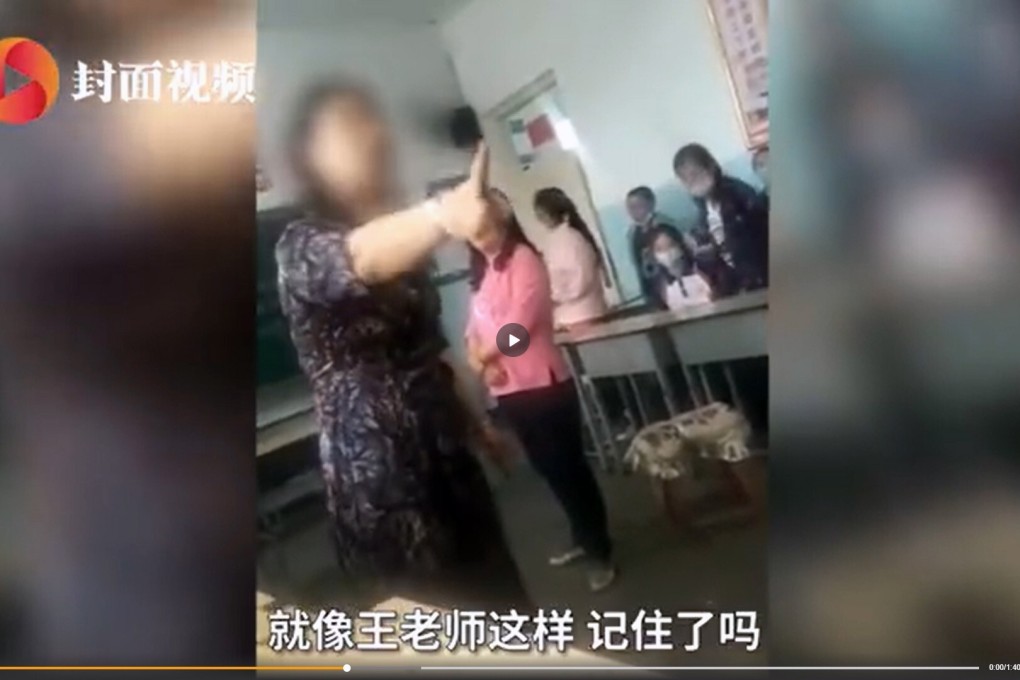Asian Angle | China still has much to learn about giving ‘gifts’ to teachers
- A viral video in which a primary schoolteacher spits at a girl after learning she favoured her colleague with a bouquet of flowers has touched a nerve
- If even educators are losing sight of the line between sincere appreciation and bribery, who will be able to teach it to the children?

At first her anger appears to be directed at all the 12-year-olds in the classroom, but it soon emerges that the worst verbal abuse is targeted at one girl in particular.
The cause of the teacher’s outrage? The girl had bought a bouquet of flowers for another teacher ahead of the class graduation ceremony, but had not done the same for her.
The teacher, identified only by her family name Wang, slams the tables and points her fingers at the students. She asks in a shrill voice how they would feel if they were in her shoes.
“You bought flowers for teacher Yang but not for me … don’t you dare ask to take [your graduation] photos with me. This is really disgusting,” Wang says.
Wang spits on the student at least twice while repeating the words “totally disgusting”.
